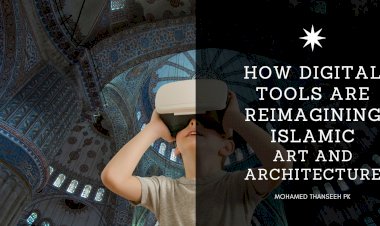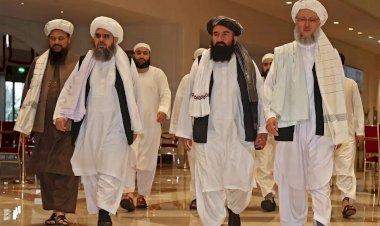Syrian Civil War: Shām’s Heritage and Assad’s Downfall
Introduction: The Historical and Islamic Significance of Syria
Syria, a country located at the heart of the Levant or Shām a term encompassing modern-day Syria, Lebanon, Jordan, and Palestine, has a rich and diverse history that stretches back to ancient civilizations. Known as Bilād al-Shām in Islamic tradition, Syria has long been a land of cultural and spiritual significance. It has served as a crossroads of civilizations, connecting Asia, Africa, and Europe, and has been home to many empires, including the Assyrians, Babylonians, Persians, Greeks, Romans, and Byzantines.
The introduction of Islam to Syria occurred during the lifetime of the Prophet Muhammad (peace and blessings be upon him). After the Muslims’ victory at the Battle of Yarmouk in 636 CE, Syria became an integral part of the Islamic Caliphate under the Rashidun, and later the Umayyads made Damascus the capital of the Islamic world. The city of Damascus became a beacon of Islamic scholarship, governance, and culture.The Prophet Muhammad (peace and blessings be upon him) praised Shām on several occasions, underscoring its significance in Islam. In the hadith narrated by Zaid ibn Thabit (may Allah be pleased with him). The Prophet said:"Tūbā for Shām." The companions asked, "Why is that, O Messenger of Allah?" He replied, "Because the angels of the Most Merciful spread their wings over it."
(Ahmad 21606; al-Tirmidhi 3954; al-Hakim 2900,)
The Prophet Muhammad (peace and blessings be upon him) foretold that Shām would play a pivotal role in preserving faith, particularly during times of tribulation. He said: “I saw the pillar of the Book taken from beneath my pillow, and I looked and saw it being carried to Shām. Truly, faith will remain in Shām when trials occur.”
(Al-Hakim 8554, authenticated by al-Dhahabi)
The Prophet (peace and blessings be upon him) often made specific supplications for Shām, highlighting its significance to the Muslim ummah. Abdullah ibn Umar (may Allah be pleased with him) narrated: “O Allah, bless us in our Shām; O Allah, bless us in our Yemen.” The companions said, ‘O Messenger of Allah, and in our Najd?’ He replied, ‘There, earthquakes and tribulations occur, and there rises the horn of Satan.’” (Bukhari 1037)
The resilience of the people of Shām and their steadfastness in upholding the truth are repeatedly emphasized in the hadith literature. The Prophet (peace and blessings be upon him) declared: “If the people of Shām become corrupt, there is no good in you. A group from my ummah will continue to be victorious and will not be harmed by those who forsake them until the Hour is established.” (Ahmad 20361; al-Tirmidhi 2192)
Damascus, known as the "City of Jasmine," is one of the oldest continuously inhabited cities in the world. Under the Umayyad Caliphate, it became a global hub for Islamic governance and learning. The Umayyad Mosque, an architectural marvel stands as a testament to the city’s enduring legacy. And for this reason, rebel commander Al-Julani selected it for his victory sermon on the day the rebel forces enetered Damascus.
In the eschatological narratives of Islam, Damascus occupies a key role, particularly during the events leading to the Day of Judgment. Abu al-Darda (may Allah be pleased with him) reported the Prophet (peace and blessings be upon him) said: “The encampment of the Muslims at the time of the great battle will be in al-Ghutah, near a city called Damascus, one of the best cities of Shām.” (Ahmad 21725; Abu Dawood 4298)
The Islamic Conquest of Shām and Damascus
The Islamic conquest of Shām (the Levant) marks one of the most important episodes in early Islamic history. This conquest, which unfolded during the Rashidun Caliphate under the leadership of the second caliph, ʿUmar ibn al-Khaṭṭāb (may Allah be pleased with him), was instrumental in establishing Islam in the region and transforming it into a cornerstone of the Muslim world.
The Muslim armies, inspired by their newfound faith and the unity brought by Islam, embarked on a series of military campaigns to spread the message of Islam beyond the Arabian Peninsula. The conquest of Shām began under the leadership of Caliph Abu Bakr (may Allah be pleased with him) and gained momentum during the caliphate of ʿUmar ibn al-Khaṭṭāb.
Key figures such as Khalid ibn al-Walid, Amr ibn al-As, Yazid ibn Abi Sufyan, and Abu Ubaidah ibn al-Jarrah played crucial roles in these campaigns. One of the defining moments of the conquest of Shām was the Battle of Yarmouk in 636 CE. Fought near the Yarmouk River, this decisive battle saw the Muslim army, though numerically inferior, achieve a stunning victory over the Byzantines. Damascus, the jewel of Shām, was one of the first major cities to fall to the Muslims. The siege of Damascus, led by Khalid ibn al-Walid and Abu Ubaidah ibn al-Jarrah, is notable for its display of both military skill and diplomatic acumen. After a prolonged siege, the city was captured in 635 CE through a combination of negotiation and force. According to historical accounts, Khalid ibn al-Walid entered the city through one gate while Abu Ubaidah entered through another, signifying a coordinated and peaceful transfer of power.
The Muslim leaders assured the inhabitants of Damascus that their lives, properties, and places of worship would be protected, setting a precedent for the humane treatment of conquered peoples. This act of mercy won the hearts of many locals, who embraced Islam and became part of the burgeoning Islamic civilization.
With the conquest of Shām and Damascus, the region was integrated into the Islamic Caliphate. Damascus emerged as a centre of governance, trade, and scholarship. Under the Umayyad dynasty, it became the capital of the Islamic empire, signifying the centrality of Shām in the Muslim world.
Modern Syria: The Rise of the Ba'ath Party and the Oppressive Rule of the Assad Family
The modern history of Syria is deeply tied to the fall of the Ottoman Empire and the subsequent division of its territories by colonial powers. After World War I, the League of Nations granted France a mandate over Syria and Lebanon. This period was marked by significant resistance from Syrians who sought independence, culminating in the formation of the Syrian Republic in 1946.
However, the newly independent nation faced challenges, including political instability, military coups, and the growing influence of ideological movements.
The Ba'ath Party, founded in the 1940s by Michel Aflaq and Salah al-Din al-Bitar, emerged as a dominant political force. Rooted in Arab nationalism, socialism, and secularism, the Ba'ath Party sought to unify the Arab world and establish a socialist framework. In 1963, the Ba'athists seized power in Syria through a military coup, marking the beginning of a one-party system. This period saw significant state control over the economy, suppression of political dissent, and the promotion of Arab nationalist ideals.
The most transformative moment in modern Syrian politics came in 1970 when General Hafez al-Assad, then Minister of Defence, staged a coup within the Ba'ath Party. His ascent to power marked the start of a dynastic rule that would shape Syria for decades.
Hafez al-Assad ruled Syria with an iron grip from 1971 until his death in 2000. He consolidated power by reshaping the Ba'ath Party into a tool for his personal control and building a vast security apparatus. The Mukhabarat (intelligence agencies) became synonymous with surveillance and suppression, silencing any form of opposition.
Hafez also reinforced sectarian divisions by relying heavily on the Alawite minority, his sect, to staff key military and government positions, while projecting an image of secularism. The Alawites, also known as Alawis, are an ethnoreligious group primarily residing in Syria, with communities in Lebanon and Turkey. Originating in the 9th century as an offshoot of Shia Islam, the sect was founded by Ibn Nusayr (died in Hijra 270), leading to their initial designation as Nusayris. The term "Alawite" reflects their belief in the divinity of Ali ibn Abi Talib.
One of the darkest chapters of his rule was the 1982 Hama massacre, where the Syrian military brutally suppressed an uprising by the Muslim Brotherhood, killing tens of thousands of civilians.
Hafez’s death in 2000 brought his son, Bashar al-Assad, to power. Initially viewed as a potential reformer due to his Western education and promises of liberalisation, Bashar’s rule soon mirrored his father’s authoritarianism. In 2011, inspired by the Arab Spring, Syrians took to the streets demanding democratic reforms, freedom, and an end to corruption. The Assad regime responded with overwhelming violence, turning peaceful protests into a full-scale civil war.
The war has since become a multi-faceted conflict involving various domestic factions, regional players, and international powers. Bashar’s regime, supported by Iran, Hezbollah, and Russia, has been accused of widespread human rights violations, including the use of chemical weapons, indiscriminate bombing, and mass detentions.
Bashar al-Assad's regime has been synonymous with unparalleled cruelty and systemic oppression, particularly in its treatment of dissenters and political prisoners. Among the most infamous symbols of his tyranny is Saydnaya Prison, often referred to as a "human slaughterhouse" by Amnesty International. Located near Damascus, this prison has been the site of mass executions, torture, and inhumane conditions. Reports suggest that thousands of prisoners have been hanged or tortured to death since the onset of the Syrian Civil War in 2011. Survivors recount horrifying accounts of starvation, overcrowding, and the systematic dehumanisation of detainees, many of whom were arrested arbitrarily for expressing dissent. The prison represents the Assad regime's deliberate use of terror to silence opposition and maintain control through fear.
The broader network of detention facilities under Assad’s rule has been equally appalling. Human rights organizations estimate that over 100,000 people have disappeared into the regime’s prisons, with many subjected to torture methods such as electrocution, beatings, and sexual violence. Families of detainees often remain in the dark about their loved ones’ fates, with the regime leveraging these disappearances to sow fear among the population. International investigations have documented evidence of war crimes, including the use of chemical weapons, starvation as a weapon of war, and the systematic targeting of civilians. Bashar al-Assad’s ruthless policies have made his regime one of the most brutal in modern history, leaving an indelible scar on Syria and its people.
Over 500,000 people were killed during the war, with countless others injured or missing. The United Nations estimates that over 13 million (More than half of Syria's pre-war population of 22 million) Syrians were displaced, including 6.8 million refugees who sought asylum in neighbouring countries and beyond. Turkey alone hosting 5.3 million of them. Cities such as Aleppo, Homs, and Raqqa were reduced to rubble, and the nation’s infrastructure and economy were left in ruins. The Syrian economy contracted by over 75% between 2011 and 2023, with widespread poverty affecting more than 80% of the population.
Assad’s Downfall, International Involvement and Future
The triumph over Assad’s regime was the result of coordinated efforts by various rebel factions, each playing a critical role in the conflict despite differing ideologies and objectives. The significant player in the final episode of the Syrian conflict, which toppled Bashar al-Assad’s regime in just 12 days, was Hay’at Tahrir al-Sham (HTS). Emerging as a dominant Islamist faction, HTS established itself as a formidable force in northwestern Syria, particularly in Idlib province, the last stronghold of opposition forces. Its rise to prominence can be traced back to its roots in Jabhat al-Nusra, an al-Qaeda affiliate founded in 2012 during the early stages of the Syrian Civil War. Initially loyal to al-Qaeda, the group later rebranded itself as Hay’at Tahrir al-Sham in 2017 under the leadership of Abu Muhammad al-Julani, distancing itself from its former patrons to gain broader acceptance and legitimacy among Syrians.
Abu Muhammad al-Julani, born Ahmad Hussein al-Shara, is the influential commander of Hay’at Tahrir al-Sham (HTS), a key faction in the Syrian Civil War. Originally from Syria’s Deir ez-Zor province, Julani first gained prominence as a member of al-Qaeda in Iraq (AQI) under Abu Musab al-Zarqawi. He later returned to Syria during the early stages of the civil war to lead Jabhat al-Nusra, al-Qaeda’s affiliate in Syria, which he helped transform into one of the most formidable rebel groups in the conflict. In 2017, Julani orchestrated a critical shift in strategy, rebranding Jabhat al-Nusra as HTS and officially severing ties with al-Qaeda to broaden the group’s appeal and legitimacy.
The Syrian Civil War was not only a domestic conflict but also a proxy battlefield for global and regional powers pursuing their own agendas. Russia, Iran, Turkey, the United States, and Gulf states played significant roles, often exacerbating the complexity of the war.
Russia, one of Assad’s staunchest allies, intervened militarily in 2015 to prevent the collapse of the regime. By 2024, however, Moscow shifted its strategy, facilitating Assad’s exile to preserve its strategic interests, particularly its naval base in Tartus and its broader influence in the region. The Ukraine war also have influenced in curbing Russia’s brutal support for Assad regime.
Iran’s involvement was rooted in maintaining its "Axis of Resistance" against Israel and the United States. It provided substantial financial aid, deployed the Islamic Revolutionary Guard Corps (IRGC), and supported Hezbollah fighters in Syria. However, Iran’s influence waned in the face of increasing international sanctions and the growing strength of rebel forces.
Turkey’s role was shaped by its opposition to Kurdish autonomy and its aspiration to expand its influence in northern Syria. Ankara supported various rebel factions and conducted military operations against both ISIS and Kurdish forces, seeking to create a buffer zone along its southern border. Turkey’s support for rebel factions was crucial in the toppling Assad.
The United States focused on combating ISIS and curbing Iranian influence, primarily through its support for the SDF. By 2024, the U.S. had scaled back its direct involvement but remained influential in negotiations surrounding Syria’s future.
Gulf states, particularly Saudi Arabia and Qatar, were early supporters of the rebellion, providing financial and logistical aid to opposition groups to counter Iran’s regional influence. Their support, however, diminished as the war dragged on, reflecting broader geopolitical realignments.
The capture of Damascus and the exile of Bashar al-Assad signalled a potential turning point for Syria. However, the road to recovery is fraught with challenges. The diverse rebel factions, despite their shared victory, must now navigate the complexities of forming a unified government. The scars of war, both physical and psychological, will take years, if not decades, to heal.
Moreover, international actors with vested interests in Syria’s future will likely continue to influence its trajectory. Balancing these external pressures while fostering reconciliation and rebuilding the nation will require visionary leadership and sustained international support. The victory over Assad’s regime is a momentous achievement, but let's pray for it be the beginning of a long journey toward a peaceful, prosperous, and inclusive Syria.
Disclaimer
The views expressed in this article are the author’s own and do not necessarily mirror Islamonweb’s editorial stance.
























Leave A Comment